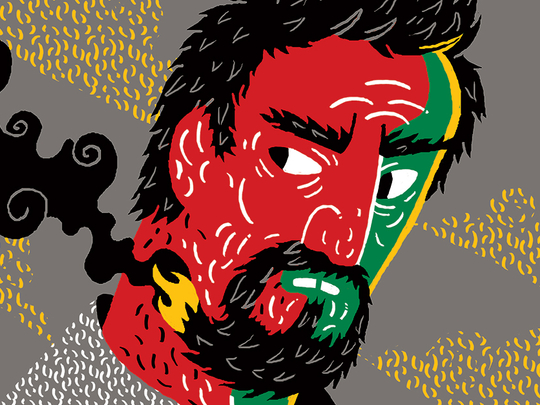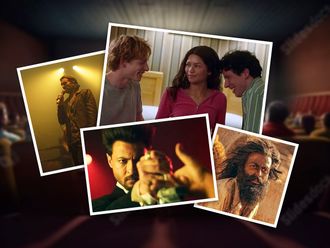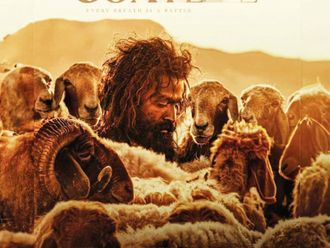
Up Against the Night
By Justin Cartwright, Bloomsbury USA, 256 pages, $27
Since apartheid ended there has been a spate of returnee novels from South African writers. A prodigal makes a trip home to find a land turned upside down, a dysfunctional family and, more often than not, a disputed farm. What Justin Cartwright has done in “Up Against the Night” is to turn these stock features into something rich and strange.
Frank McAllister, on the surface at least, is a bona fide Londoner. Over the years he has acquired a comfortable fortune, a vituperative ex-wife, a daughter trying to kick a drugs habit and a gentle Swedish lover with an awkward son. But Frank has bad dreams, often saturated with blood, and these out him for what he really is, a covert South African.
After years in the English closet, Frank accepts that his carefully built disguise no longer serves. Not only is he not properly English, he is half-Afrikaner and he is related to the Boer hero and martyr Piet Retief. (So too, as it happens, is Cartwright.)
Piet Retief was canonised in the old South Africa for defying the British government in the Cape, and trekking away to freedom in Natal. Announcing that he had been welcomed by the Zulu chief, Dingaan, he planned to settle. For this presumption, not uncommon among white colonists, Dingaan had him murdered, along with 70 of his followers.
The Boers exacted a terrible price when they annihilated a large Zulu army, in 1838, at the battle of Blood River. Each year thereafter, on December 16, “Dingaan’s Day” was piously observed as the moment God took the side of brave white Boers against perfidious black Africans.
It wasn’t Dingaan’s Day at all, but Retief’s revenge — such semantic subterfuges are the stuff of South African history. And that history, as Frank ruefully recognises, has often been a matter of murder.
One of the strengths of “Up Against the Night” is the way it connects past cruelties to present suffering. Afrikaner nationalism mingled tribe, blood and destiny, and the effects were disastrous. Retief’s murder set in stone the antipathies felt by Boers and black people for each other for decades to come. What was apartheid, after all, but fear and loathing codified and backed by divine sanction?
Frank keeps a second home in the Cape, which he sees as an enchanted place — but by thinking like that he risks making the same mistake as Retief. Frank hopes his trip home will give his “European” family a glimpse of Africa. Instead it shipwrecks him in a place he does not know, amid beauty and terror, those interlocking strands of South African reality.
“Up Against the Night” explores the Afrikaner myth of arriving in idyllic Eden and declaring it yours, only to find that those who got there first feel the same way. Cartwright points up the bitter comedy and the murderous misunderstandings without ever masking the tragedy.
Cartwright has never been shy of Shakespearean structures, and this time he uses “The Tempest”. Frank is a melancholy Prospero, whose magic is money — but that is of limited use. Indeed, it can get you killed. The Caliban figure here is the monstrous Jaco, who claims Frank as a cousin. In his ranting racism and his delight in grabbing his gun and blazing away, Jaco is so close to the real thing it’s embarrassing.
Jaco was once almost eaten by a great white shark; almost became a Scientologist; and on one triumphant occasion, makes a stab at being human. Frank would prefer to assign his brutish cousin to some far branch of the family tree, but Jaco has the staying power that Frank lacks and steals the show whenever he appears.
The supporting cast who circle Frank seem little more than figures on a painted backdrop. The real business of the novel in this land of bad dreams is Frank’s doomed passion for his beloved country and Jaco’s exuberant love affair with guns.
Frank is quick to notice how violence erupts in the everyday world: how a Coke bottle makes a murder weapon, and why stealing a mobile phone may be “affirmative shopping”. Jaco notices very little, but when it comes to living or dying, he knows what to do. It is Jaco who has a future in this baffling new world, whereas Frank has only his haunted past.
“Up Against the Night”, with its subversive mix of tenderness and terror, is a rare novel that gets South Africa right.
–Guardian News & Media Ltd
Christopher Hope’s “Jimfish” is published by Atlantic.








